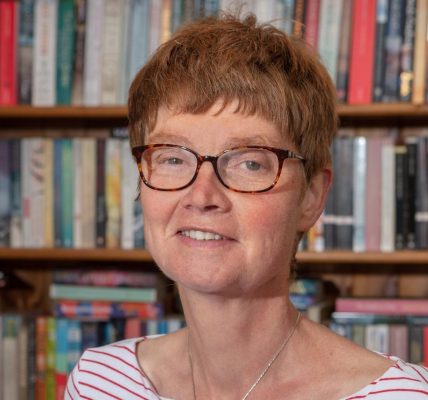Profile: the Sheffield entrepreneur eyeing a bigger piece of the Hollywood pie
If there’s one town that knows how to adapt to changing circumstances it’s Hollywood, and Tinseltown has arguably risen to the challenges thrown up by Covid better than many.
When the pandemic and ensuing lockdowns shut down production of new films and other content, the big media companies looked to the past to secure their future, dusting off old material and upgrading it to fit the new age of ultra-high-definition streaming.
Another place that has learned how to pivot to adjust to changing times is Sheffield, and one of its companies, Zoo Digital, has been one of the beneficiaries of the lockdown media boom.
“This shift to streaming has been ongoing for a number of years now, and that transition has been accelerated by Covid and the pandemic,” CEO Stuart Green told .
“We’ve all had more time at home to watch TV, and lots of people have taken out subscriptions to new services.
“But behind the scenes, creating these new programmes is something that’s been put on hold for over a year now. That’s led to a lack of new programmes coming to the market, new TV series, new feature films. And of course, cinemas have been closed, so even if they were being produced, you’ve got nowhere to go and watch them. So our clients have refocused on back catalogue content.”
Zoo Digital specialises in media services, including subtitling, dubbing, and localisation – all the “under-the-bonnet” things that make sure that when a programme goes on a platform such as Netflix, it plays smoothly, without a glitch, all the audio and subtitles come in at the right time. Its clients include all the world’s major players: Disney, NBC Universal, Viacom CBS, HBO, Apple, Amazon and the BBC.
As more content finds its way to new, previously untapped markets, more localisation services – such as subtitles and dubbing – are needed, and even pre-Covid, the industry was buoyant, worth $24bn a year.
US firms dominate the sector, but Dr Green believes Zoo Digital, which now also has offices in London, Los Angeles and Dubai, can and will be doing a lot of catching up over the coming years.
“We’ve done really well over the past year,” he says. “We grew the business by 33 per cent, with sales just shy of $40m, and we’ve indicated to the stock market that our medium-term aspirations are to deliver revenues of $100m.
“That sounds like a huge leap from where we are, yet we can actually see our path to get there; we can see what we need to do and those big steps that we need to make are within our grasp.”
It’s all a far cry from the computer room at Chesterfield School, where Dr Green first fell in love with computers, tinkering with the 8-bit Commodore 64 that was the educational standard issue in the early 1980s.
“When I discovered computers I always knew that was for me,” he says. “I always envisaged that I would be involved in setting up a software business. It just came a bit sooner than I expected.”
He set up his first company after completing his PhD in Computer Studies (his thesis was entitled ), and has been at the pioneering end of the industry ever since. Now, his company is in a position to go truly global.
“We have a plan that is really just based around winning market share, and growing the contribution from our existing clients. Obviously, we won’t stop looking for additional clients, but it’s an achievable goal in the medium term based solely on the clients that we already have.”
His confidence is founded on more than just optimism. Zoo Digital, which employs about 310 people, has been able to expand its footprint over the last 15 months because it has a not-so-secret weapon: technology.
“What sets us apart is that we work smarter, using proprietary cloud software that we’ve created,” says Dr Green.
“We’ve got an R&D department here in Sheffield, which produces innovative software that means that we can do all this work in a way which is different from the way in which it has been done traditionally, but is not subject to the challenges that have been posed by the pandemic.
“Our competitors essentially work from physical facilities in lots of studios in lots of countries around the world, and they’ve all been locked down, unable to operate. But because of the way we work, we can work virtually over the internet, and engage with voice actors and dubbing directors and translators and scripted actors. We’ve been able to work with all this talent, wherever they’re located in the world.
“So we’ve devolved this process, and we’re able to operate in a distributed way because of the software. Our people can collaborate very efficiently, very effectively, and produce work that’s of a comparable, if not better, quality than what you’d expect from a traditional facility by working in this in a virtualised, distributed way.”
To back up the expansion, Zoo Digital raised £7.4m earlier this year, and has earmarked some of the money to open up new offices in India and Southeast Asia. Dr Green has more locations in mind, but is keeping tight-lipped about where exactly.
Another portion of the money has been set aside for the Sheffield-based R&D function, whose 40 employees will be looking into the potential of AI and machine learning to boost productivity, although Dr Green assures: “What we’re not trying to do is cut out the important human contributions to this whole ecosystem. We still absolutely believe that the best localisation of media will be done by specialist media translators who are doing this work ‘by hand’, and voice actors who are recording the lines themselves.”
This gives a clue to where Dr Green’s priorities really lie. For all that technology – inanimate and insentient – has governed his life and career, it is the human side of the business that drives him.
Asked what he’s most proud of, he says: “It’s been great to establish this world-leading R&D group – one of its kind in the whole world – and establishing it in Sheffield, building on local talents and collaborating with local universities, which we’ve done for many years. I think it’s that: there’s nothing better than creating opportunities for people.”
Stuart Green was born in 1965 and grew up in Chesterfield, Derbyshire, where he first became interested in computers while still at school.
At the University of Bristol he graduated with a BSc in Computer Studies with Mathematics in 1986, and followed it up with a PhD in Computer Studies in 1989.
On receiving his doctorate, he immediately co-founded a computer-aided design software firm, Lightwork Design, in 1989. He floated a spin-off from it, Kazoo3D, on the AIM market in 2000, and sold another spin-off, MachineWorks, in 2006.
In 2001, ZOO Digital Group was formed by the merger of Kazoo3D plc and ZOO Media Corporation Ltd, with Dr Green initially acting as CTO, but, since 2006, as CEO.
He is married with five children and plays the oboe to orchestra standard.










